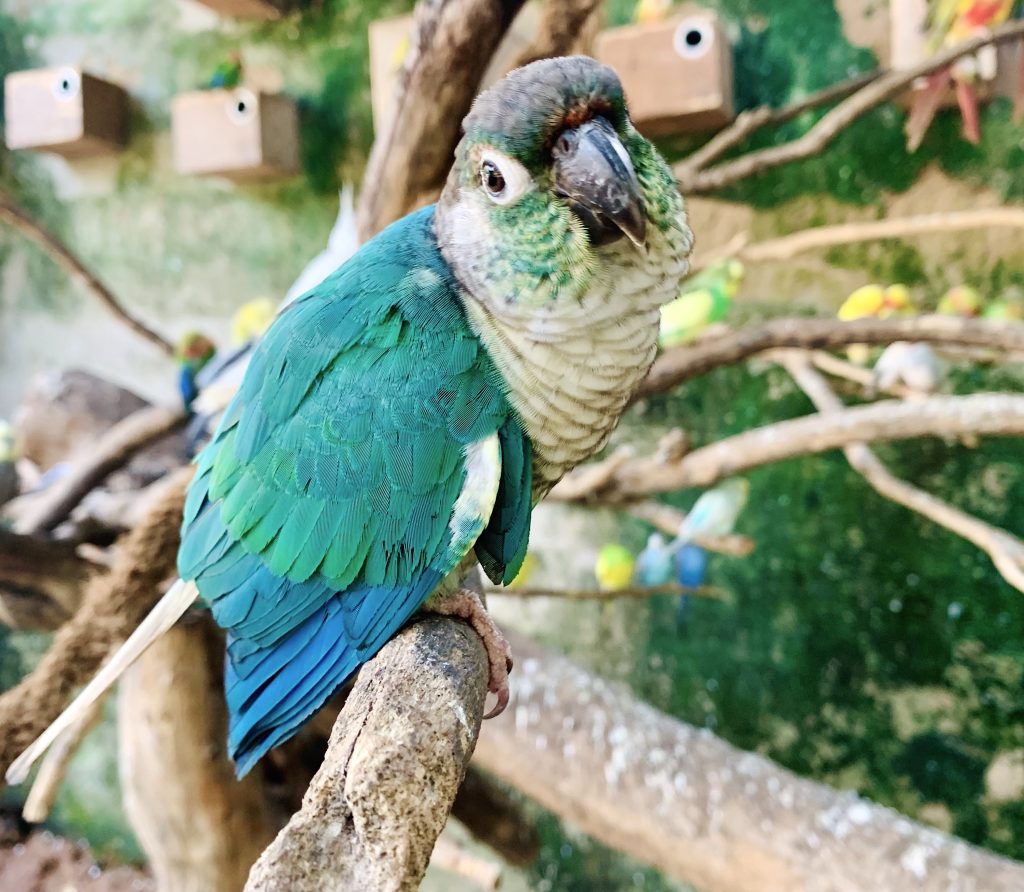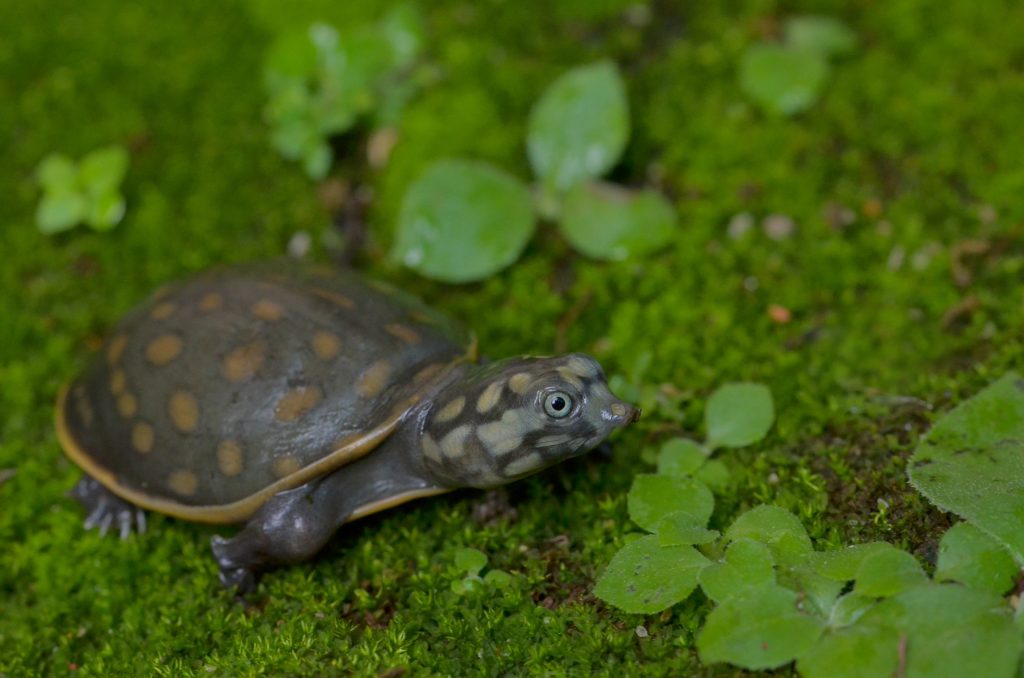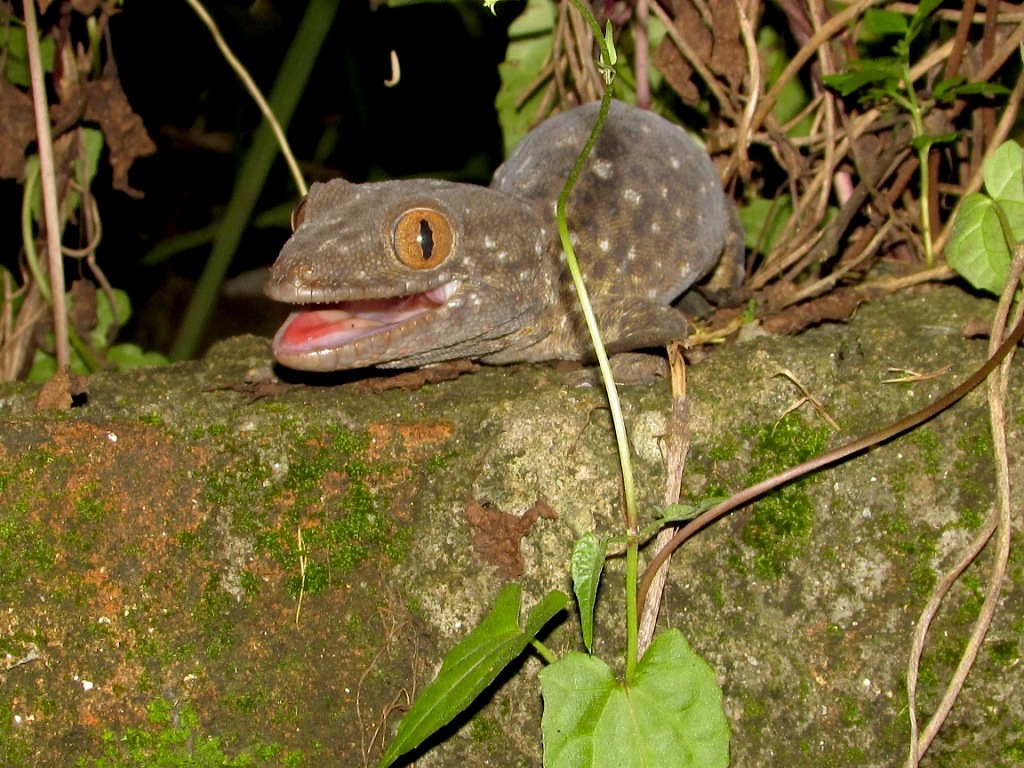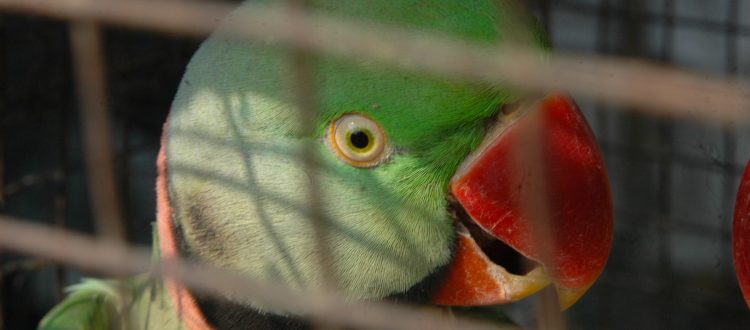Unveiling the dark world of illegal pet trade in India
Within India’s abundant biodiversity, an illicit underground market thrives – the illegal pet trade. This highly lucrative industry poses a grave threat to native wildlife and the natural balance of ecosystems. Certain species are particularly coveted by smugglers and poachers for commercial gain, driving up their demand in the black market and leading to observable declines in their populations within their native habitats. The covert industry of the pet trade is fueled by the demand for rare (not regularly domesticated) and non-native or exotic species, which presents a formidable challenge to the ecosystem. This commerce not only threatens the native biodiversity and the ecological balance but can also be a source of potential zoonotic diseases.
The surging demand for exotic pets
There is a massive demand for rare and exotic animals, usually non-native species for purposes such as entertainment, companionship, and status symbols. India’s rich biodiversity, porous borders in the North and Northeast regions, and a confluence of religious beliefs and a desire for displaying social status have made it both a source and a destination for the illicit trade in exotic pets.

Colourful and vocal birds like the Conure which is native to South America, are sought after in the exotic pet trade industry | Photo by Arinita Sandilya
India has strict penalties under the Wild Life (Protection) Act, 1972 (WPA, 1972) to combat the issue of illicit pet trade. Moreover, the incorporation of the Convention on International Trade in Endangered Species of Wild Fauna and Flora (CITES) into the act during the 2022 amendment reinforces these provisions. Despite these stricter laws, the domain of Illegal Wildlife Trade (IWT) remains a lucrative, low-risk business due to the hefty sums of money involved and the demand from high-end buyers.
The scale of the pet trade
The pet trade represents a significant segment within the broader domain of the IWT. A substantial quantity of wild animals from various parts of the world is captured, transported, and sold to cater to the global demand for exotic and rare pets. Although the precise proportion of trafficked animals within the pet trade remains uncertain, the sheer volume of wild animals traded annually in both domestic and international markets is staggering. Many pet owners perceive themselves as animal lovers, enthusiasts, and collectors, often unaware of the consequences of their demand for such animals. Other motivations for owning and illegally trading wild animals can include, financial gain, religious beliefs, participation in competitions (like birds for song contests), or the display of social status.
In recent times, airways have become the primary route for poachers involved in trafficking exotic species in India. According to recent reports, more than 70,000 native and exotic species were trafficked via air routes. To address this pressing issue, the Indian government introduced a one-time amnesty program through the Ministry of Environment, Forest and Climate Change (MoEFCC). In turn, a total of 32,645 individuals voluntarily declared their possession of exotic and native species from June to December 2020.

The Indian flapshell turtle is one of the most traded turtle species in the country | Photo by Madhumay Mallik
While commendable efforts are being made, stricter measures are essential to employ rigorous enforcement actions. In this regard, Wildlife Trust of India (WTI) applauds the Bihar Forest and Wildlife Department for initiating a recent campaign aimed at curbing the illegal pet trade of tortoises. Tortoises hold auspicious significance in Hindu culture (known as Kurma, an avatar of Lord Vishnu), which inadvertently fuels the trade, particularly during the festive seasons of Dussehra and Diwali. The department has emphasised that individuals keeping tortoises as pets could face hefty fines and/or jail terms under the WPA, 1972 and the Prevention of Cruelty to Animal Act, 1960. This move is a significant step in deterring wildlife crime and sets the stage for further decisions aimed at safeguarding wildlife and its natural habitat.
Our efforts to combat this trade
The WTI has a long-standing commitment to addressing the issue of IWT. Our efforts extend through collaborations with the forest department, rescue centres, and the judicial system. WTI plays a crucial role in equipping and training these committed agencies, ensuring they possess the necessary tools and expertise to effectively combat poaching and wildlife trafficking.
WTI has established a well-connected network of informants on the ground and operates a specialised team of cyber spotters. They play a pivotal role in acquiring crucial on-ground intelligence and infiltrating social media platforms which have become convenient hubs for sellers and buyers from across the globe due to the anonymity accorded to users.

There is a high demand for Tokay Geckos in the pet trade and traditional Chinese medicine due to superstitions and misguided beliefs | Photo by WTI
One of our focused initiatives within its broader efforts to combat wildlife crime is the “PAN India Enforcement Assistance” project. Our team has assisted in seizures of various species including Indian star tortoises (Geochelone elegans), black pond turtles (Geoclemys hamiltonii), Indian roofed turtles (Pangshura tecta) and soft shell turtles (Nilssonia gangetica), as well as tokay geckos (Gekko gecko), snakes and several species of parakeets within India. The majority of these seizures took place in Chhattisgarh, followed by confiscations in Uttar Pradesh, Gujarat, Maharashtra, Haryana, Telangana, Kerala, Assam, and Arunachal Pradesh.
WTI’s analysis of seizures related to the illegal pet trade of native and exotic species from 2019 to 2023 across India revealed that there were more than 100 IWT cases of illicit pet trade involving a total of 109 species. Of these, 79% were exotic indicating a growing trend in smuggling of exotic wildlife species, both in and out of India. The majority of seized species were mammals (48%) with primates being the most common, followed by reptiles (26%) and birds (18%). The illegal pet trade is spread all across the nation, with 65% of the species confiscations occurring in Northeast India due to its porous borders, facilitating easy access for poachers and smugglers.
In conclusion, addressing the illegal pet trade requires a multi-pronged approach involving stricter enforcement, awareness initiatives etc. Only through collective efforts can we hope to protect India’s precious wildlife and preserve the delicate balance of its ecosystems for generations to come.
This article has been written by WTI’s Wildlife Crime Control Division.









